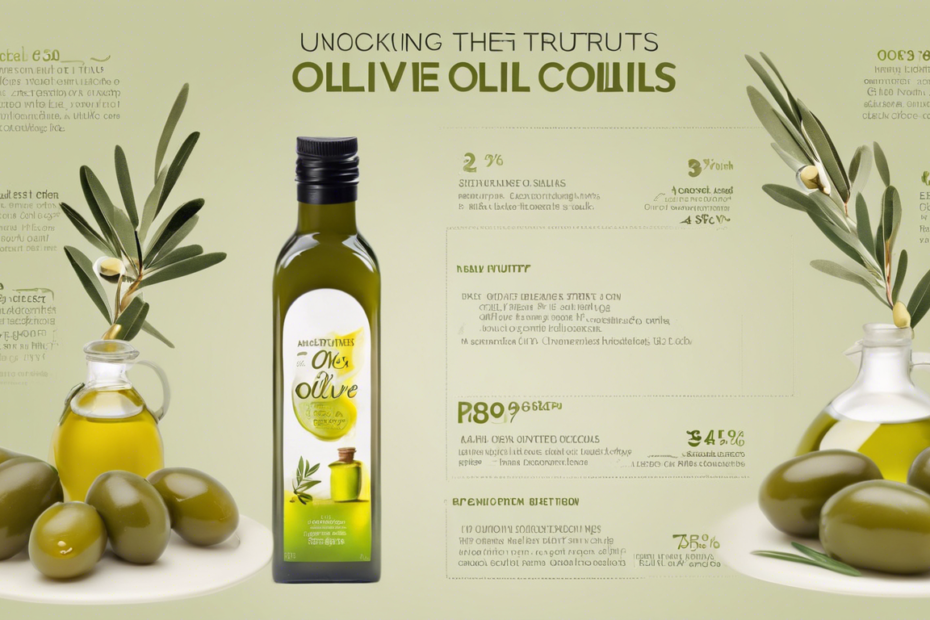Are you curious about olive oil calories and what they mean for your health?
Look no further!
In this article, we’ll delve into the nutritional breakdown of olive oil, explore its numerous health benefits beyond just calorie counts, and share some easy tips for incorporating this delicious oil into your daily diet.
Let’s get started on unlocking the truth about olive oil!
Incorporating Olive Oil into Your Diet: Tips and Serving Suggestions
Incorporating olive oil into your diet is a delicious and healthy choice, especially when you consider its amazing flavor and versatility.
One of the first things to keep in mind is that while olive oil is packed with beneficial fats, it does contain calories—about 120 calories per tablespoon, to be exact.
But don’t let that deter you!
When using olive oil, think of it as a flavorful enhancement to your meals rather than just another fat source.
Try drizzling it over your favorite salad for a fresh kick, or use it as a base for sautés, adding veggies and your choice of protein.
Another fun idea is to mix it with herbs and spices to create a zesty dip for bread or a vibrant marinade for meats.
Remember, a little goes a long way, so you can enjoy its rich taste without overdoing it on calories.
Whether you’re tossing it in pasta, using it to roast vegetables, or simply enjoying it on some crusty bread, olive oil can elevate your meals both in flavor and health benefits!
Frequently Asked Questions
What is the calorie content of olive oil?
Olive oil contains about 120 calories per tablespoon.
It’s primarily made up of healthy fats, which contribute to its calorie content.
Are all olive oils the same in terms of calories and nutrition?
While all olive oils have similar calorie content, extra virgin olive oil generally contains more antioxidants and nutrients compared to regular olive oil because it’s less processed.
What are the health benefits of incorporating olive oil into my diet?
Olive oil is known for its heart-healthy properties.
It contains monounsaturated fats, which can help lower bad cholesterol levels, and antioxidants that may reduce inflammation and promote overall health.
How can I include olive oil in my diet without exceeding my calorie intake?
You can incorporate olive oil in moderation.
Use it as a dressing for salads, drizzle it over cooked vegetables, or use it for sautéing.
Just be mindful of the serving size to keep your total calorie intake in check.
Can olive oil help with weight management?
Yes, olive oil can be part of a weight management plan.
Its healthy fats can help you feel full, which might reduce overall calorie consumption.
However, moderation is key due to its calorie density.


